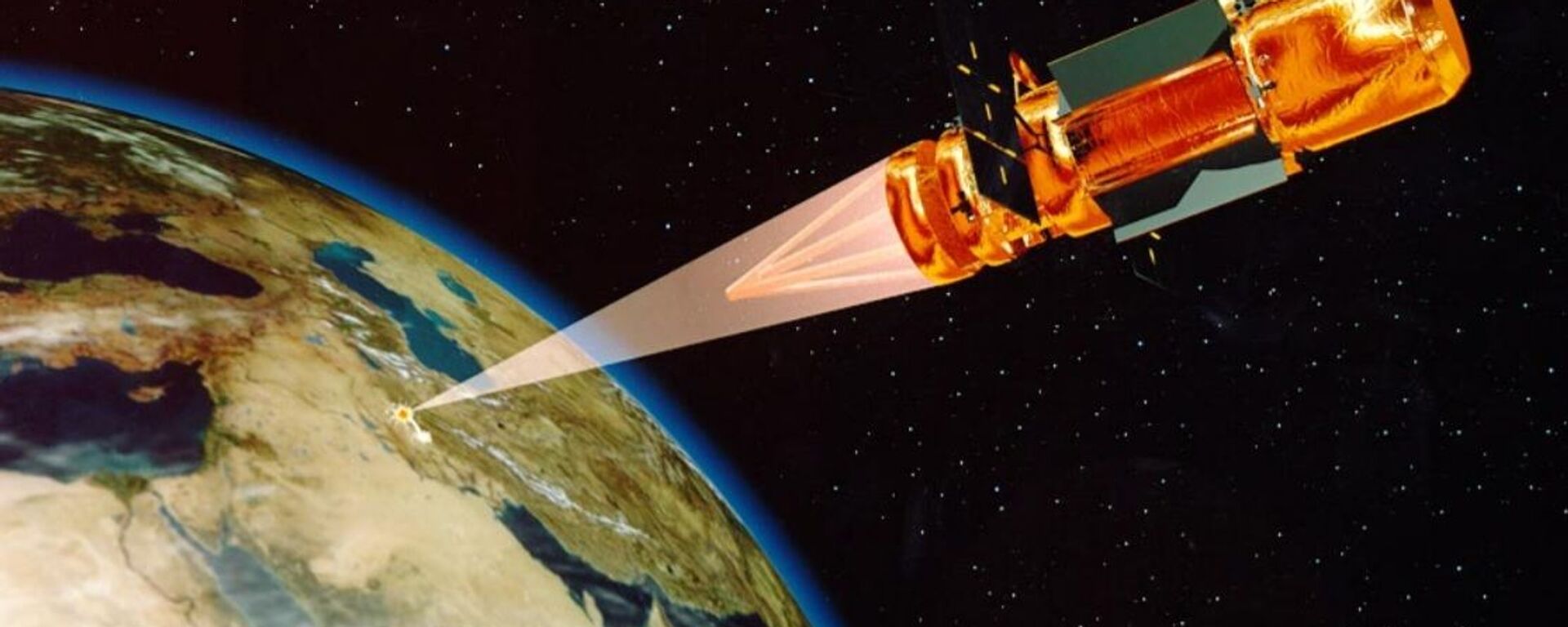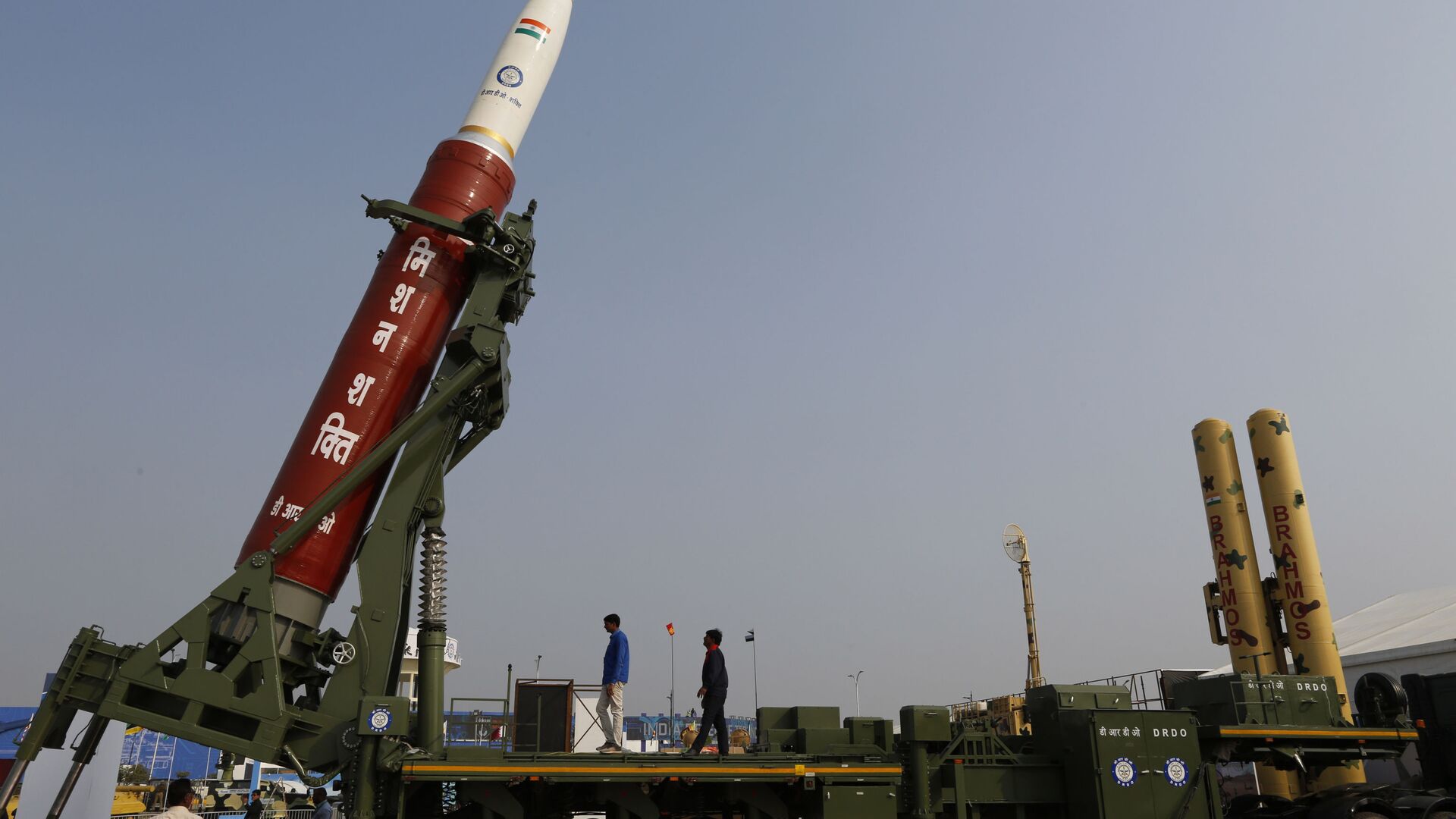https://sputnikglobe.com/20210907/lack-of-critical-technology-restricts-indias-anti-satellite-capabilities-admits-iaf-vice-chief-1088856980.html
Lack of Critical Technology Restricts India’s Anti-Satellite Capabilities, Admits IAF Vice Chief
Lack of Critical Technology Restricts India’s Anti-Satellite Capabilities, Admits IAF Vice Chief
Sputnik International
In 2019, India successfully carried out an anti-satellite (ASAT) test in which a ballistic missile defense interceptor destroyed a state-owned Microsat-R... 07.09.2021, Sputnik International
2021-09-07T19:39+0000
2021-09-07T19:39+0000
2022-10-19T20:12+0000
china
satellite
indian space research organization (isro)
space war
indian defense ministry
indian air force (iaf)
https://cdn1.img.sputnikglobe.com/img/107822/98/1078229832_0:160:3073:1888_1920x0_80_0_0_833cd9cd028a8d31ae31d266ce7022db.jpg
Two years after the government dubbed the ASAT test a success, Air Marshal Vivek Ram Chaudhari, Vice Chief of the Indian Air Force (IAF), divulged that the country lacks the indigenous technical capability to observe, track and identify non-allied objects in orbit. He acknowledged that there remains a wide gap in capability development for the nation's military satellite applications.The vice chief said that space has become a playground for the world’s best minds to continue evolving and breaking new ground. He has advised the country's defence research unit and space agency to integrate their existing capabilities into the air surveillance feature.“The Air Force is aiming to expand its footprint in space exploration, in partnership with ISRO. The Kargil war [against Pakistan in 1999] served as a trigger for having additional satellites to enhance our operations. In recent times, increased focus on military space application has been one of the accelerating key factors,” he said on Tuesday in New Delhi. The ISRO will launch five more satellites for the armed forces in the coming months, according to reports. Presently, Indian armed forces are said to have eight dedicated military satellites.Observing that the ability to use aircraft as launch platforms may well be the future, Chaudhari said that space tech capabilities have become a crucial component for the IAF's military operations. "Our strategy is to fully integrate air and space capabilities to have a common operating picture in the aerospace medium,” he emphasized.India had conducted an ASAT test with a relatively small craft in comparison to communication satellites, with a surface area of some two square meters and at a low velocity. With the test, India joined a short list of countries—China, the United States, and Russia—that have demonstrated the space capability.
https://sputnikglobe.com/20200825/trump-administration-is-actively-moving-to-turn-space-into-a-war-zone-expert-warns-1080256337.html
china
Sputnik International
feedback@sputniknews.com
+74956456601
MIA „Rosiya Segodnya“
2021
Rishikesh Kumar
https://cdn1.img.sputnikglobe.com/img/07e4/08/04/1080055820_0:0:388:389_100x100_80_0_0_40018ee210946d65d49ffba4f4c008e1.jpg
Rishikesh Kumar
https://cdn1.img.sputnikglobe.com/img/07e4/08/04/1080055820_0:0:388:389_100x100_80_0_0_40018ee210946d65d49ffba4f4c008e1.jpg
News
en_EN
Sputnik International
feedback@sputniknews.com
+74956456601
MIA „Rosiya Segodnya“
Sputnik International
feedback@sputniknews.com
+74956456601
MIA „Rosiya Segodnya“
Rishikesh Kumar
https://cdn1.img.sputnikglobe.com/img/07e4/08/04/1080055820_0:0:388:389_100x100_80_0_0_40018ee210946d65d49ffba4f4c008e1.jpg
china, satellite, indian space research organization (isro), space war, indian defense ministry, indian air force (iaf)
china, satellite, indian space research organization (isro), space war, indian defense ministry, indian air force (iaf)
Lack of Critical Technology Restricts India’s Anti-Satellite Capabilities, Admits IAF Vice Chief
19:39 GMT 07.09.2021 (Updated: 20:12 GMT 19.10.2022) In 2019, India successfully carried out an anti-satellite (ASAT) test in which a ballistic missile defense interceptor destroyed a state-owned Microsat-R satellite in a flight that lasted just over half a minute.
Two years after the government dubbed the ASAT test a success, Air Marshal Vivek Ram Chaudhari, Vice Chief of the Indian Air Force (IAF), divulged that the country lacks the indigenous technical capability to observe, track and identify non-allied objects in orbit. He acknowledged that there remains a wide gap in capability development for the nation's military satellite applications.
“This [lack of indigenous capability] not only restricts our defensive outer space capabilities but also limits our anti-satellite capabilities in the future. Therefore, space situational awareness is the need of the hour. We should be able to know the hostile manoeuvres by advisories’ space objects".
Vivek Ram Chaudhari
Vice Chief of the Air Staff, Indian Air Force
The vice chief said that space has become a playground for the world’s best minds to continue evolving and breaking new ground. He has advised the country's defence research unit and space agency to integrate their existing capabilities into the air surveillance feature.

25 August 2020, 12:00 GMT
“The Air Force is aiming to expand its footprint in space exploration, in partnership with ISRO. The Kargil war [against Pakistan in 1999] served as a trigger for having additional satellites to enhance our operations. In recent times, increased focus on military space application has been one of the accelerating key factors,” he said on Tuesday in New Delhi. The ISRO will launch five more satellites for the armed forces in the coming months, according to reports. Presently, Indian armed forces are said to have eight dedicated military satellites.
Observing that the ability to use aircraft as launch platforms may well be the future, Chaudhari said that space tech capabilities have become a crucial component for the
IAF's military operations. "Our strategy is to fully integrate air and space capabilities to have a common operating picture in the aerospace medium,” he emphasized.
India had conducted an
ASAT test with a relatively small craft in comparison to communication satellites, with a surface area of some two square meters and at a low velocity. With the test, India joined a short list of countries—China, the United States, and Russia—that have demonstrated the space capability.






